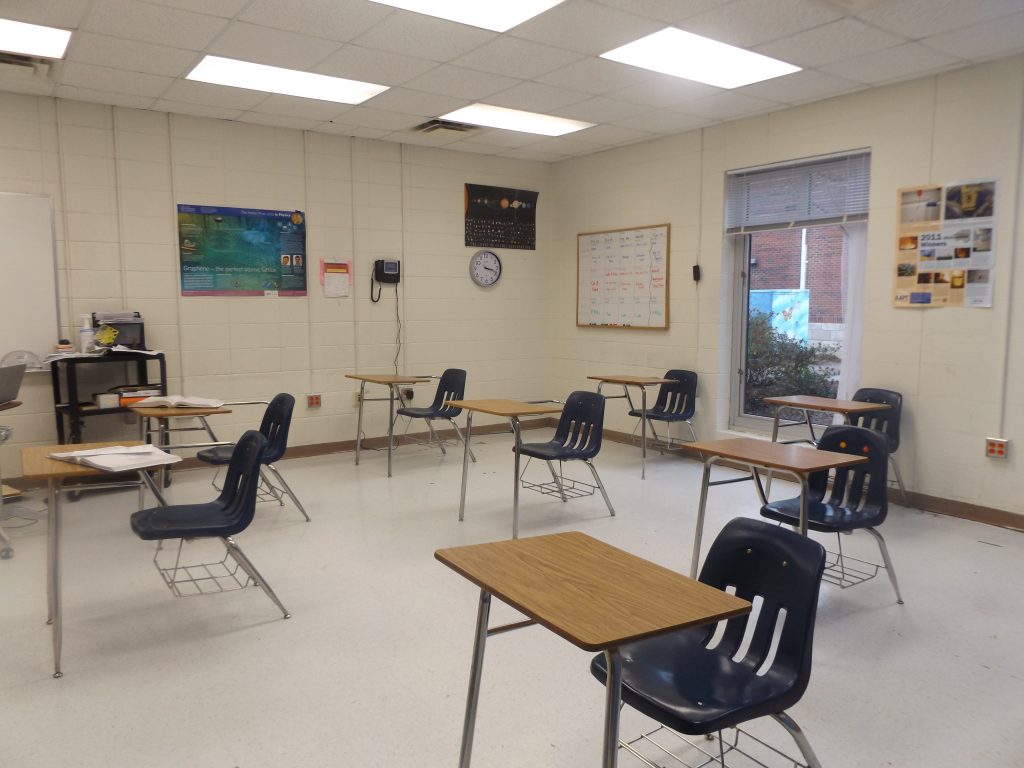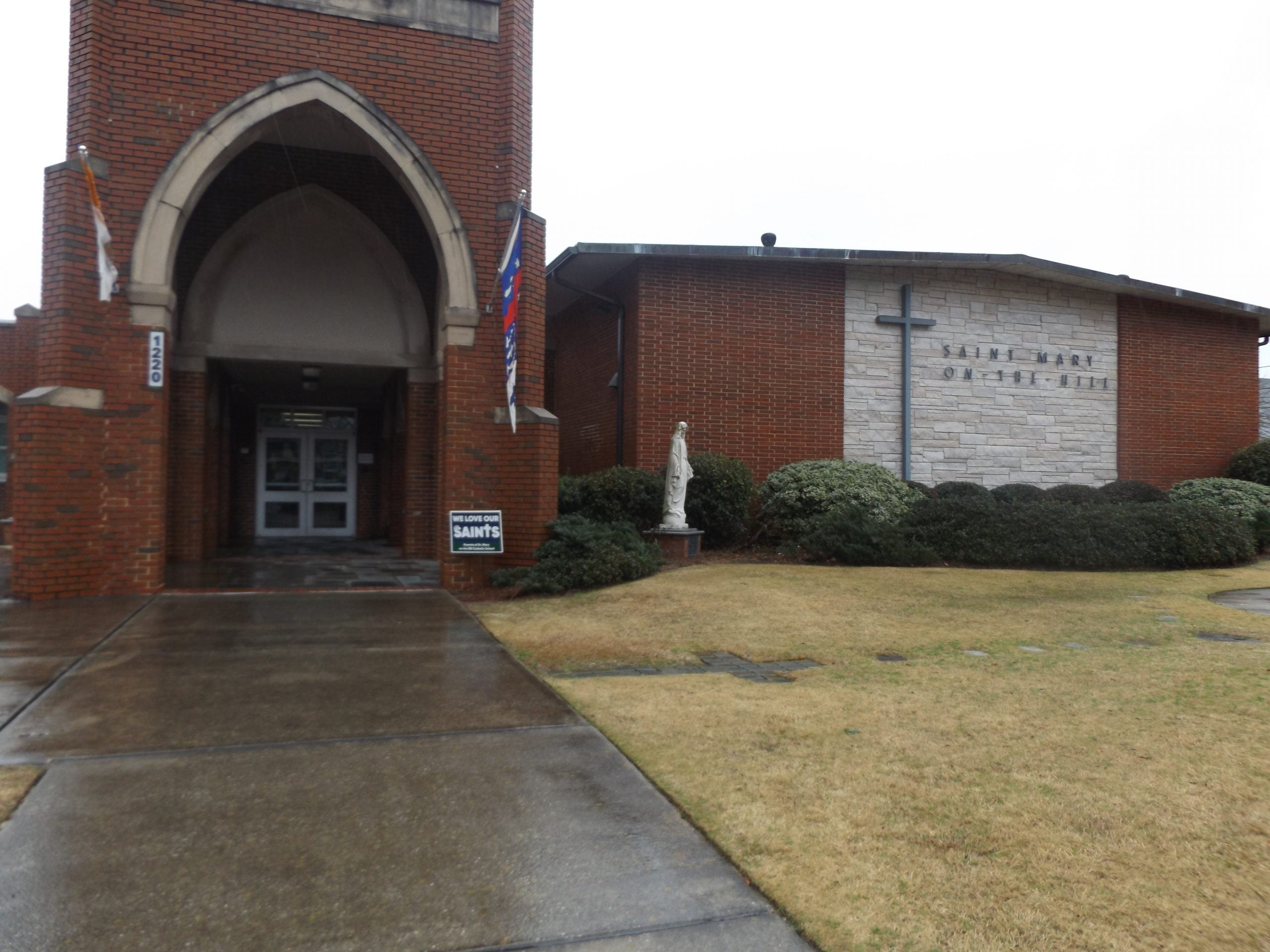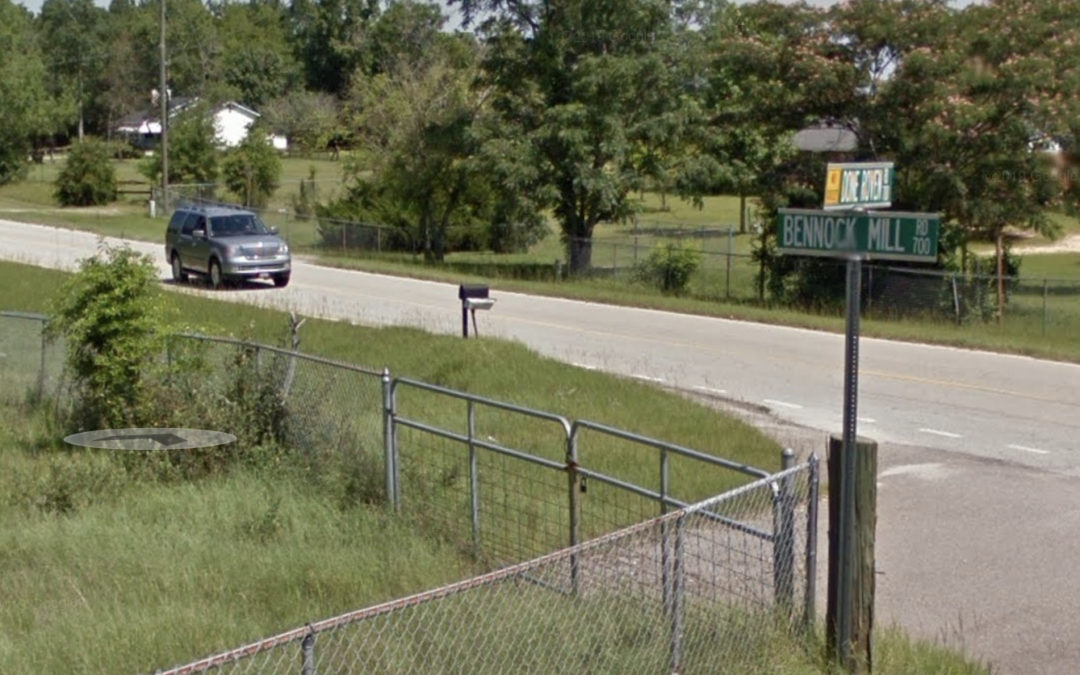Three local private schools credit parental cooperation as the main reason they have kept the doors open and experienced low numbers of COVID-19 cases.
“We have not closed school,” Todd Shafer said of the 2020/2021 school year at St. Mary’s on the Hill Catholic School. “We have not closed a single classroom.”
[adrotate banner=”30″]
Formerly a teacher at St. Mary’s, Shafer took over as principal on July 1. He said the pandemic made for a “trial by fire” experience to develop a reopening plan. St. Mary’s plan was grounded in community consensus to engage the students in face-to-face learning.
Linda Tucciarone, executive director of Heritage Academy, shared the same sentiments. The school, which serves 245 students from low-to-moderate income families, has had no closings. She believes distance learning is not the ideal learning environment for children because family resources and parent availability come into play. Children require social interaction and are energized by their classmates, she said.
“We are going to find that incidents of mental health have escalated,” she said of the country as a whole. “Feelings of isolation and anxiety go up with all these things, and I am not even talking about whether you are mastering algebra yet.”
Augusta Preparatory Day School has also not had to shut down. Derrick Willard, head of school, said he approached the pandemic like an exercise in risk management. The school of 400 students installed portable ionizers in some areas. Staff stripped the classrooms, leaving little more than a podium that allowed for increased distancing between desks. The school took every opportunity to conduct classes outside. Picnic tables became limited to two students.
COVID-19 presented these schools with a limited number of complications.
“We have had to shut down some classrooms,” Tucciarone pointed out, and stated that COVID-19 infection forced entire classes to quarantine at home and engage in digital learning. “Either the teacher tested positive or there were two students in the classroom who tested positive.”
All three private schools’ administrators and staff scrambled to develop pandemic policy in the midst of unchartered waters.
St. Mary’s nurse, Rhonda Wallace, worked closely with Shafer to develop the scheme that they hoped would keep the school of 438 students open through May. Like Willard and Tucciarone, Wallace researched guidelines and recommendations on various government agency websites. She also sought the advice of local resources, including AU Health.
The St. Mary’s team asked parents who worked in the medical field for feedback. They looked at comprehensive COVID-19 plans implemented by local school systems. Although located in Richmond County, St. Mary’s COVID-19 policies closely resemble Columbia County School District’s plan for reopening.
[adrotate banner=”31″]
“I really liked what they did,” Shafer said and added that they tailored CCSD’s guidelines to fit the Catholic School’s needs.
All three private schools relied on parents to keep their symptomatic children at home.
COVID-related considerations in all three schools included the health and well-being of the teachers. St. Mary’s employs a couple of teachers over the age of 65, according to Shafer. Implemented procedures at the Catholic school include enhanced cleaning and a static disinfecting fogging machine.

Small enrollment dictated that St. Mary’s did not have to reduce class sizes. Teachers clean the classrooms in between transitioning students. The school installed hand sanitizing stations around the building. Signage reminds students to wash their hands.
Over the summer, Heritage classrooms gained needlepoint ionization modules at a cost of approximately $25,000. The school installed automated thermometers in the foyers. Classrooms were arranged in pods, allowing the students to eat at their desks equipped with shields. Students who transition from class-to-class carry portable shields with them. Custodians conduct deep cleaning every evening.
“These things are not cheap,” Tucciarone said.
The private schools remain flexible and adaptable in their approaches.
Initially, St. Mary’s installed plexiglass in the cafeteria, but because the number of COVID-19 cases has begun to fall, the plexiglass came down. Middle school students eat in their classroom. Last fall, the school mandated masks in the hallways during transition times as students moved from classroom to classroom. However, wearing masks in the classrooms, where desks were spread out, was left to the teachers’ discretion.
After Christmas break, as COVID numbers increased throughout the State, the school changed its policy to include that masks be worn at all times. St. Mary’s continues to exercise the mandatory mask wearing in the classrooms, with the exception of giving students a 10-minute break, one student a time, Shafer said.
Throughout the school year, the number of distance learners has decreased. In August, St. Mary’s enrollment included 23 students in online learning. By Feb. 18, parents decreased that number to six students learning from home. Heritage started out with 16% of the student population learning from home but by January 100% of the students were learning face-to-face. Augusta Prep used the online platform Google Classroom for quarantined students and teachers.
Parents looked at their children in terms of how they were doing academically, emotionally and socially and said “it was time” for their children to go back to school, according to Shafer.
“They looked at how successful we have been at minimizing the spread,” he said. “We can’t take away the risk, but we are doing everything we can to minimize the risk of exposure.”
Contract tracing indicates that of the approximately 20 confirmed COVID-19 cases St. Mary has recorded, no transmission of the virus began in the school. All of the cases were contracted out in the community, including Shafer who fell ill with the coronavirus in November. Augusta Prep’s contact tracing results concluded the same of the 13 confirmed cases involving nine students and four teachers.
[adrotate banner=”19″]
The three private schools credit their success in battling the pandemic to a combination of cooperation by parents, students, staff and teachers. Shafer, Tucciarone and Willard said everyone involved has been supportive of the decisions that have been made. Tucciarone called it a missional commitment to what is best for the students.
“The biggest piece of this coronavirus has been our parents,” Shafer said. “They have been so supportive of what we are doing.”
The pandemic presents possibly the biggest challenge the private schools have faced, and the road to keeping the doors open has been tough. Tucciarone said the pandemic puts school administers in between a rock and a hard place, trying to juggle what is best both academically and health-wise.
Willard described COVID-19 circumstances as exhausting, low-chronic stress. People are running on fumes, he said. Still, as more people get vaccinated, he remains optimistic.
“It’s a heavy weight on my shoulders,” Shafer said and laughed. “But we are open, learning is happening, and the kids are happy.”
Shellie Smitley is a staff writer for The Augusta Press. Reach her at shellie@theaugustapress.com
[adrotate banner=”45″]













